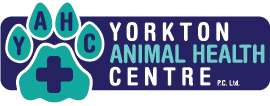Nutrition for Cats with Chronic Kidney Disease
My 10 year-old cat was just diagnosed with chronic kidney disease, and I was told he needs to eat special food. What does this mean for him?
 Chronic kidney disease (CKD) is the most common kidney-based disease in cats. Waste products are normally filtered out of the blood by the kidneys and excreted in the urine, but cats with CKD will end up with an accumulation of these waste products in the bloodstream as the filtering process breaks down. CKD occurs on a spectrum, progressing through four stages with each subsequent stage reflecting a more severe phase of the disease than the last. Your veterinarian can help you understand the various stages of CKD and identify the current stage that applies to your cat.
Chronic kidney disease (CKD) is the most common kidney-based disease in cats. Waste products are normally filtered out of the blood by the kidneys and excreted in the urine, but cats with CKD will end up with an accumulation of these waste products in the bloodstream as the filtering process breaks down. CKD occurs on a spectrum, progressing through four stages with each subsequent stage reflecting a more severe phase of the disease than the last. Your veterinarian can help you understand the various stages of CKD and identify the current stage that applies to your cat.
CKD can occur in cats of any age, but it is the most common illness in cats over the age of 10. The most common clinical signs of CKD are increased thirst/drinking and increased urinating. Other clinical signs may include lethargy, lack of appetite, vomiting, weight loss, and bad breath. The clinical signs of CKD become more severe as the disease progresses. Many cats with CKD also have high blood pressure and their hypertension should be treated appropriately.
"CKD can occur in cats of any age,
but it is the most common illness in
cats over the age of 10."
What role does nutrition play in managing CKD?
There are four core goals for managing CKD in cats:
- Control the clinical signs associated with accumulating waste products in the blood
- Minimize problems with fluid and mineral balance
- Sustain adequate nutrition
- Modify/slow the progression of CKD
Nutrition addresses all of these goals. Veterinary prescription diets for cats with CKD are developed to prioritize these key goals. When compared with normal maintenance adult cat food, a kidney support diet contains less protein, sodium and phosphorus and increased omega-3 fatty acids. These diets are formulated to help cats with CKD avoid metabolic acidosis.
 How do nutritional requirements differ for cats with CKD?
How do nutritional requirements differ for cats with CKD?
Water:
Diseased kidneys are not as effective at excreting waste products from the body through the urine. One consequence of CKD is a decreased ability of the kidneys to concentrate the urine. In order to continue to rid the body of its toxins despite more dilute urine, the body compensates by stimulating greater thirst. This makes it critical for you to provide your cat with an unlimited supply of fresh water. Canned food will help increase your cat’s intake of fluids.
Protein:
Decreased dietary protein appears to slow the progression of CKD by decreasing the workload on the kidneys to excrete protein waste products. Less protein also means less need for the excretion of protein itself through the filtration mechanism of the kidney, which helps preserve kidney function.
"Decreased dietary protein appears to
slow the progression of CKD by decreasing
the workload on the kidneys to excrete
protein waste products."
Phosphorus:
Limiting dietary phosphorus in cats with CKD appears to help delay the progression of CKD, although the precise mechanism is unknown. The recommended phosphorus range on a dry matter basis for cats with CKD is 0.3-0.6%. Since phosphorus content is related to protein content, it is impossible to achieve these lower levels of phosphorus without limiting protein content.
Omega-3 fatty acids:
Dietary omega-3 fatty acids reduce protein “leaking” through the kidneys. They also help reduce the production of inflammatory compounds that create oxidative stress to the tissue of the diseased kidneys, thus contributing to slowed progression of CKD.
How can I make good nutritional choices for my cat with CKD?
Your veterinarian will help you choose an appropriate formulation for your cat based on the stage of their disease. It is critical to maintain adequate calorie density in order to support good body condition, so food portion calculations and regular weigh-ins are important. Veterinary kidney support diets tend to be quite palatable because it is so important for these cats to eat in a way that slows the progression of their CKD. Your veterinarian is your best resource for determining the best nutritional choice for your cat as CKD progresses. It is important that your can only be fed the prescribed diet and nothing else. The benefits of the diet will be negated by adding other components to it.
CKD is frequently diagnosed in aging cats. Feeding an appropriate nutrient profile to slow the progression of this disease contributes to both life expectancy and quality of life.
© Copyright 2025 LifeLearn Inc. Used and/or modified with permission under license. This content written by LifeLearn Animal Health (LifeLearn Inc.) is licensed to this practice for the personal use of our clients. Any copying, printing or further distribution is prohibited without the express written consent of LifeLearn. This content does not contain all available information for any referenced medications and has not been reviewed by the FDA Center for Veterinary Medicine, or Health Canada Veterinary Drugs Directorate. This content may help answer commonly asked questions, but is not a substitute for medical advice, or a proper consultation and/or clinical examination of your pet by a veterinarian. Please contact your veterinarian if you have any questions or concerns about your pet’s health. Last updated on Jan 12, 2023.


